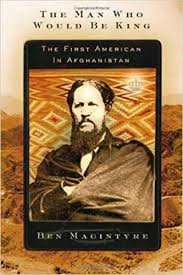Please keep the other posts on topic. Use this for talking about whatever you want to talk about.
Tag: Open Thread
Open Thread – Brown Pundits
Please keep the other posts on topic. Use this for talking about whatever you want to talk about.
Also, I’ve posted a new linguistic podcast on the patron page. It’s 1 hour and 20 minutes, and really dense with information and wide-ranging. There were five people, but I didn’t say much, and Zach was mostly asking questions. So there were three with a huge amount of knowledge engaging with each other. I have to say that this serves as a good model/example for future podcasts.
Open Thread – Brown Pundits
Please keep the other posts on topic. Use this for talking about whatever you want to talk about.
The end of the Kalash is nigh
 Verily I say unto you, this generation shall not pass, till all the Kafir Kalash bend the knee to the one true God!
Verily I say unto you, this generation shall not pass, till all the Kafir Kalash bend the knee to the one true God!
I think anyone who has given it any thought knew that this was inevitable and just a matter of time. That time seems to be now. The Kalash compensated for conversion with higher endogenous fertility, but if it is true that educated young women are converting to Islam, their ability to reproduce their numbers will decrease rapidly.
Anxious Times In Pakistan’s Pagan Valley Rising Islamic Influence Pressures An Ancient People:
Naveed is a member of the Kalash, a pagan community known for their fair skin that has long inhabited this area near the border with Afghanistan. The Kalash people, many of whom believe they are the descendants of the armies of Alexander the Great, have held on to their religious beliefs and colorful rituals for centuries, even as a sea of Islam has encircled them.
But the unique traditions of the Kalash are coming under mounting cultural pressure as the pace of conversions to Islam accelerates within Pakistan’s smallest ethnoreligious community. The Kalash population currently numbers between 3,000-4,000, and locals estimate that some 300 of their members have converted to Islam over the past three years, The Washington Post reported in November. Some local reports, however, have said the figure is not that high.
First, to preempt genetic comments: the Kalash do not descend from Europeans like Alexander’s Macedonians, as such. Rather, they are a mix of Indo-Aryan steppe ancestry, with a base of Iranian farmer (the largest component probably), along with a residual but non-trivial amount of indigenous deep South Asia ancestry (AASI in other posts). It is probably fair to say that they are among the most Indo-Aryan peoples in the Indian subcontinent, but the recent work on the Ror people indicates that some Jatt groups are similar.
Second, the fact that they are not Muslim to this day is simply due to the contingencies of history. The Afghan conquest of nearby Nuristan in the last decade of the 19th century resulted in the wholesale conversion of the pagans of that region. The fact that the Kafir Kalash were on the British side of the border meant that they were spared forced conversion.
And so almost magically deep into the 21st century, we got a window into the world of Indo-European customs and practices of the descendants of the Andronovo and Sintashta cultures, relatively isolated from the primary stream of what became Hinduism to the south and east and Zoroastrianism to the west (both of which interacted with non-Indo-European indigenous elements). The sun is setting on these people, whether through forced conversion, or the attractiveness of modernization and assimilation into the dominant culture of Pakistan.
In a few generations, they will be but faint memories to their descendants, and a single thread of the many threads of human cultural history will vanish forever.
Browncast Episode 30: Philippe Lemoine on philosophy, politics, French immigration & The European Union

Another BP Podcast is up. You can listen on Libsyn, iTunes, Spotify, and Stitcher. Probably the easiest way to keep up the podcast since we don’t have a regular schedule is to subscribe at one of the links above.
You can also support the podcast as a patron (the primary benefit now is that you get the podcasts considerably earlier than everyone else…).
I’m toying with an “AMA” on a YouTube live stream for “Patrons” only another benefit. Since there aren’t too many Patrons it might be a simple thing to do if no one shows up!
But I would definitely appreciate more positive reviews. Many of you listen to us, but don’t leave any reviews!

This week we talked to Phillipe Lemoine, a philosopher, pundit, and data scientist. Phillipe has his own blog, but I would also recommend his pieces in Jacobite magazine
Informally I think of this episode of the BrownCast as “frawg-talk.”. We addressed Phillipe’s intellectual journey, from computer scientist to philosopher of science to data scientist. How he got involved in various assorted issues, and hard-headed analysis of migration into France, as well as sanguine attitude toward the European Union.
Open Thread – Brown Pundits
Please keep the other posts on topic. Use this for talking about whatever you want to talk about.
Already posted a new podcast, “Frawg-talk” on the Patron page. Don’ know when this podcast is going live….
Open Thread – Brown Pundits
Please keep the other posts on topic. Use this for talking about whatever you want to talk about.
Open Thread – Brown Pundits
Please keep the other posts on topic. Use this for talking about whatever you want to talk about.
Open Thread – Brown Pundits
Please keep the other posts on topic. Use this for talking about whatever you want to talk about.
Open Thread – Brown Pundits
Please keep the other posts on topic. Use this for talking about whatever you want to talk about.
